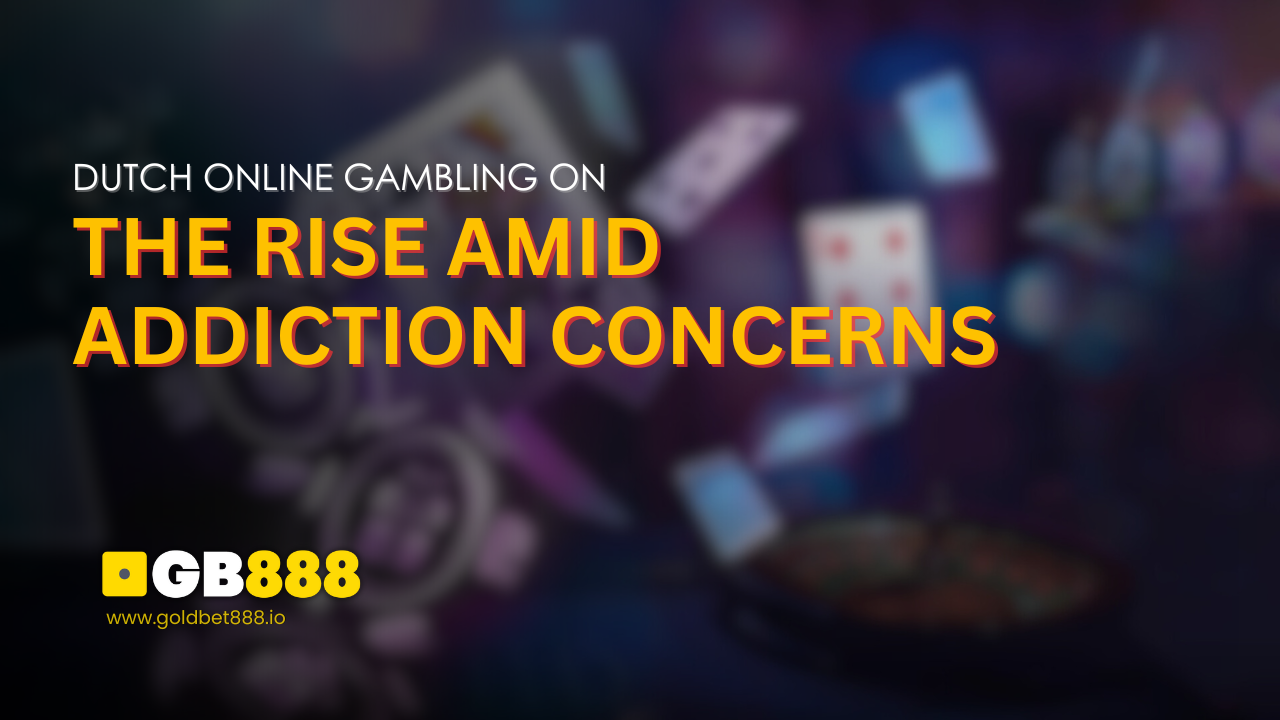Dutch Online Gambling on the Rise Amid Addiction Concerns
The world of online gambling is growing fast in the Netherlands. Only 10% of adults have tried it recently, but there’s a twist. Concerns about addiction are also on the rise. Young players are especially vulnerable. Does the thrill outweigh the risks? Let’s take a deeper dive into what’s happening.
Online gambling might be exciting, but it’s not all fun and games. A recent report from the Scientific Research and Data Centre (WODC) sheds light on this trend. As digital gaming takes off, the risks for addiction are becoming more apparent. With just 10% of adults participating, why is everyone so concerned?
The Online Gambling Landscape in the Netherlands
Online gambling has been increasing in popularity in the Netherlands since its legalization in October 2021. Although only 10% of adults have gambled online, this does not diminish its impact. Among traditional forms like lotteries, scratchcards, and bingo, online sports betting stands out. Interestingly, online sports betting participation surpassed offline, highlighting its growing appeal.
Who is Joining the Online Gambling Scene?
A significant portion of these new online gamblers started after regulation in 2021. It’s popular among younger people, raising concerns about addiction risks. The data shows that 70% of online gamblers in 2024 began their journey post-legalization.
Despite being just 1% of all gamblers, the high-risk segment is concerning. Among young adult online gamblers, this climbs to 18%. With 11% of all online gamblers considered high risk, it’s clear there’s an issue brewing.
The Dark Side of Digital Entertainment
While gambling can be entertaining, it poses serious risks, especially among young adults who manage their own accounts. Addiction and gambling-related harm need attention. The Problem Gambling Severity Index (PGSI) labels 10% of online gamblers as moderate-risk players.
The WODC points out possible flaws in the current policies, which expect players to monitor their own habits. For the youth, self-regulation might not be enough. Existing measures to combat gambling addiction are seen as insufficient. With growing numbers of players entering the online world, the threat is apparent.
In 2024, 24% of online gamblers received behavior feedback via on-screen messages. Alarmingly, only 9% were reached out through chat or email. Such figures indicate a lack of effective communication from gambling operators to players.
Self-Exclusion Tools and Their Importance
Self-exclusion features are vital in combating gambling addiction. However, many problem gamblers don’t know about Cruks, the Dutch self-exclusion system.
Despite its importance, only 4% voluntarily used temporary self-exclusion, while 3% committed to an involuntary ban. These tools require more promotion for effective addiction prevention.
Recommendations for Stronger Gambling Policies
The WODC has lined up several recommendations to address these issues. Enhancing regulations starts with shifting the duty of care away from solely betting operators.
Accessing player data for research, empowering the Kansspelautoriteit (KSA), and cracking down on unlicensed platforms are key actions suggested. These steps aim to reinforce control over Dutch gambling operators.
A New Focus: Preventing Gambling Harm, Not Just Addiction
The WODC emphasizes a broader approach to gambling issues. Rather than focusing solely on addiction, efforts should shift towards preventing harm.
The goal is to mitigate negative consequences for players. Protecting vulnerable groups, especially young adults, from targeted advertising is crucial for this strategy.
How Do Players Receive Feedback?
Feedback on gambling behavior is limited. The study found that only 24% of online gamblers got feedback through pop-ups, with fewer receiving chat or email follow-ups.
Effective communication on gambling patterns is important. More interactive approaches could provide better support for players.
Tackling Unlicensed Gambling Platforms
Unlicensed gambling platforms present another challenge. While strict measures are advised, it’s crucial to raise awareness about these illegal options.
Educating the public on the risks of unlicensed platforms will help safeguard players.
Protecting Young Adults from Gambling Ads
Young players face extensive exposure to gambling ads. The report calls for stricter measures to protect them. This involves reducing the reach of these ads. Such changes aim to shield young adults from developing harmful habits.
Online gambling in the Netherlands is growing but poses addiction risks, especially to the young. Existing policies need strengthening to protect vulnerable individuals. While gaming offers entertainment, safety measures are vital. Striking a balance between fun and safety is crucial in the digital gambling age.
- Privacy & Policy
- Terms & Conditions
- About Us
- Contact Us
- Address: 163 Lorong 1 Toa Payoh 01-1004, Singapore
- Email: gb888casino@gmail.com
- Hotline: +65 9184 8888
- Website: gb888casino.org

